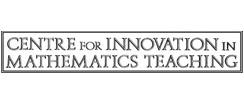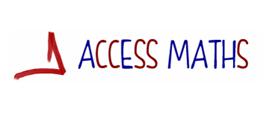Problem Solving
A list of great problem solving activities to be used in secondary maths teaching which can be used to meet the needs of the new curriculum.
- ALL
- External link
- Other
External link
Building with blocks
A series of activities in which pupils create a series of buildings using individual blocks, from the Freudenthal Instituut. Utrecht University
NRICH Tasks (Secondary)
"...a selection of our favourite Secondary NRICH tasks (content usually met between the ages of 11 and 16), chosen because they are ideal for developing subject knowledge, mathematical thinking, problem-solving skills and good mathematical habits."
Other
SMILE Cards
SMILE (Secondary Mathematics Individualised Learning Experiment) was initially developed as a series of practical activities for secondary school students by practising teachers in the 1970s. It became a complete individualised scheme based around a network of activity cards and assessments. The cards were organised so that each student followed their own path through the work which was recorded on a network.
Mathematics Enhancement Programme (MEP)
The Mathematics Enhancement Programme has been developed over the past few years at the Centre for Innovation in Mathematics Teaching. It set out to implement in UK schools the findings of international research. The scheme of work for each year is split into two parts, A and B. The MEP course has been developed in line with MEP philosophy, which encourages whole class interactive teaching.
Problem Solving Tasks
"The Spode Group produced a number of resources to support problem solving in mathematics through real life problems. Some of the resources were produced to support the C.S.E. syllabus and others were written at the time mathematics teachers were preparing for coursework to become a compulsary part of the assessment of mathematics at GCSE level.
The resources contain a wide range of open-ended tasks, practical tasks, investigations and real life problems still useful today to place the mathematics learnt in the classroom into a real world context."
Access Maths
This collection contains ten resources each containing an engaging activity for mathematics students. Mathematical topics covered include fractions, algebra, area and perimeter, problem solving, factorising quadratics, times tables and brackets.
Bowland Maths: Assessment Tasks
Over 30 stand alone tasks that can be used to assess student achievement. Cats and Kittens is a favorite!
Bowland Maths case studies
24 of the best problem solving activities.
"This collection offers students, and their teachers, a set of interesting, exciting problems. Each problem is designed to develop thinking, reasoning and problem solving skills. In completing the activities students will be required to represent a situation in mathematical terms, analyse models, interpret, evaluate and communicate their results."
Graded Assessment in Mathematics (GAIM)
A massive collection of fantastic, accessible, real-life problems. The GAIM Investigations resource itself has 40 investigations.
"GAIM Activities are open-ended tasks where achievements in using and applying mathematics can be assessed alongside content."
Investigations
"These interactive investigations from Subtangent help to develop a systematic approach but require students to use their own recording methods. They can be used as a whole class introduction to an investigation or as individual tasks."
Makes Sense Series
"This set of six books from SMILE caters for a wide range of ability and ages. The activities cover aspects of algebra, multiplication, ratio and using spreadsheets. All include teachers' notes and photocopiable activity sheets."
Maths Magic
"Maths Magic’s aim is to make mathematics more appealing and enjoyable for students and to open up new opportunities for them in STEM subjects and careers."
Task Maths
Textbooks with a different approach to most.
"The tasks are not ‘normal’ textbook chapters but are ‘themed’. This encourages the integration of the mathematics content. The material in some tasks may be useful to supplement work in current schemes. The books also contain many helpful sets of review exercises."






